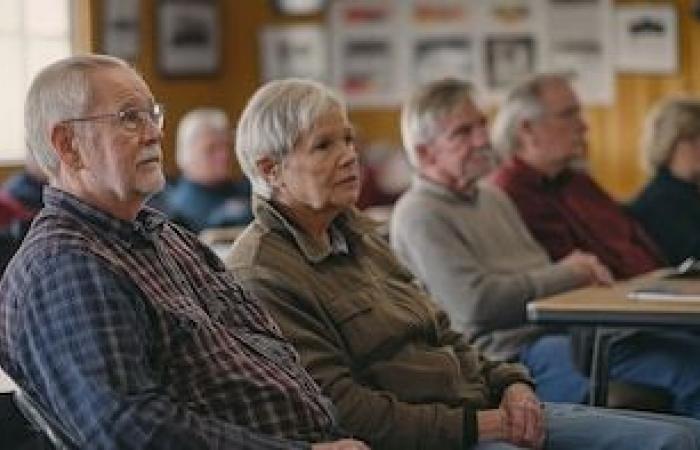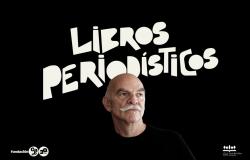The doctor Lucía Crivelli, Chief of Neuropsychology in Fleni adults and doctor in psychology with guidance in applied cognitive neuroscience, described the healthy aging during your participation in Infobae live. “Los superagers They are people from 80 years or more whose memory works like someone from 50 or 60, ”he explained. The specialist explained that this phenomenon, far from being exceptional, characterizes the 7% of older adults and can be influenced by sustained life habits from youth.
These statements were made in dialogue with Infobae liveduring the program a.m.which has the conduction of Gonzalo Sanchez, Loving Carolina, Ramon Indart and Cecilia. In this context, Crivelli He deepened the factors that allow cognitively active old age, and revealed that the phenomenon of the over -the -“is not explained only by genetics”, but by a combination of biological, emotional and behavioral variables.
“To be considered Superager you must be 80 years or older and a memory comparable to someone’s younger 30 years,” he explained Crivelli. Contrary to what is usually thought, it is not an uncommon phenomenon: “The prevalence is 7%, and There are more women than men. 8% of older women enter this category, compared to 6% of men. ”
This data is curious if it is considered that the prevalence of DEMESS y Alzheimer’s disease It is also greater in women. “Of every three cases of Alzheimer’s, two are in women,” he said. However, this double scenario is explained from a broader vision: “The supermemoria It does not depend only on the biological. It has to do with the Epigeneticsthat is, with the life experiences that modify our brain structure. ”
A striking feature is the relationship between superagers and certain early experiences. “In general, these people had some kind of Musical training in childhoodeither in musical reading or with some instrument. It is not decisive, but it is more prevalent among them, ”said the neuropsychologist.
In addition, the socialization It appears as a key factor. “They usually have strong links with their community, participate in clubs, NGOs or social activities beyond the family. In fact, studies show that they are more divorced than marriedbut they are not isolated, ”he said. Social isolation, on the other hand, is a risk factor for cognitive impairment.
To those who seek to preserve or improve their ability to remember, Crivelli recommends incorporating the five key factors from young people: physical exercise, Cognitive activity, balanced nutrition, active socialization y control cardiovascular. “The superagers not only have better memories, too They move faster than your peers. They walk faster, move fingers with greater agility. The body also ages better, ”he said.
The specialist shared concrete techniques to stimulate memory. Among them:
- Associate information to emotions: “What excites me, I retain it better.”
- Sensory stimulation: “Study with a certain aroma and then sleep with that same aroma facilitates the consolidation of memory.”
- Vary Types: “If we write in a difficult letter, such as Comic Sansthe brain works more and memory improves. ”
- Interrupt readings and resume them later: “Cut in half and return after 10 minutes helps to set the information better.”
- Physical exercise before and after memorizing: “Oxygen the brain and improves retention.”
- Cold water showers: “They are used by those who compete in memory championships. They have stimulating effect.”
- Strategic fist use: “Tighten the right fist when memorizing and the left when remembering active the appropriate cerebral hemispheres.”

Memory is deeply linked to emotion. As explained Crivellithe most intense emotions – they are positive or negative – generate more vivid memories. This is measured by two dimensions: the valencia (if the emotion is pleasant or not) and the arousal (The activation level). “An emotion like anger, which is negative, but of high activation, leaves a deeper mark than a soft sadness. The same happens with intense joy against mild satisfaction,” he illustrated.
This relationship explains why certain experiences are recorded so sharply. “The memories that generate a strong emotional activation have greater retention over time,” he said.
Another of the powerful ideas that left Crivelli is that memory is not fixed. “It is not a box where you keep things and take them out as you left. Every time we remember, we open the box and add what we feel or think about that moment. That is why memories are contaminated,” he explained.
Thus the false memoriesa phenomenon studied by the American expert Elizabeth Loftus. In some cases, you can even convince a person to live something that never happened. “This was studied with the memories of the attack on Twin towers. At ten years old, 70% of people had modified their original story, ”he explained.
From this perspective, memory can also be worked in therapy. “In cognitive therapy, false memories are not implanted, but past memories are opened and reinterpreted from new looks. This can relieve the weight of traumatic memories,” he said.

A habitual question is whether they can be forgotten painful memories at will. The answer is complex. “There are two great psychological theories: the psychoanalysiswhich raises an unconscious to which we do not access, and the cognitive theorieswho claim that we can modify our emotions from thought. Both agree that our thoughts influence what we remember and how we feel it, ”he explained Crivelli.
From that vision, Emotional memory It can work, expand, reinterpret. Hence, the memories associated with multiple sensory experiences – see, hear, write, speak – are more solid than those that are only heard, as in the case of an audiobook.
A part of the talk was dedicated to study methods. “Study the previous day It can work to take an exam, but knowledge is more fragile and lost quickly, ”he warned. On the other hand,“ the leisurely studyreflective and with controlled interruptions generates lasting understanding. ”
He Methodical review activates long -term memory. As an example, a journalist commented that when reading a complex book only on weekends, his mind quickly recovers the thread when he takes it away. “That is a natural trick. Interrupting and resuming improves retention because the brain needs to close what was interrupted,” he explained Crivelli.

“Yes, it is an aspirational goal,” said the neuropsychologist. But “you do not arrive alone. It is a teamwork. Socialization is repeated as a common factor in those who age well. Talking with the environment, keeping socially active, communicating: all that protects the brain.”
And he concluded: “As he says Robert Waldingerdirector of Harvard’s study on happiness, consistent links over time They are the best well -being predictor. This is worth both for happiness and Mental and cognitive health”.
Infobae live It accompanies you every day on YouTube with interviews, analysis and the most prominent information, in a close and dynamic format.
• From 9 to 12: Gonzalo Sánchez, Carolina Amoroso, Ramón Indart y Cecilia Boufflet.
• From 18 to 21: Jesica Bossi, Diego Iglesias, María Eugenia Duffard y Federico Mayol.
Ctuality, talks and protagonists, live. Followers in our channel of YouTube @infobae.










